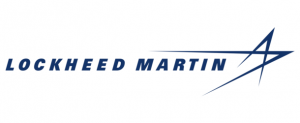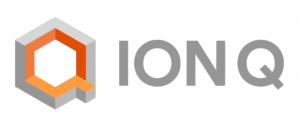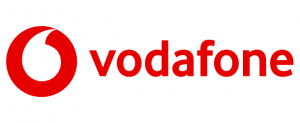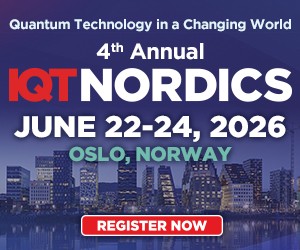Quantum News Briefs July 11: AI, quantum and nuclear technologies are key to Lockheed Martin’s vision for Space 2050; Vodafone tests quantum-safe business network solutions; Qilimanjaro advances quantum innovation in Spain with QaaS delivery to Barcelona Supercomputing Center + MORE

Quantum News Briefs July 11: AI, quantum and nuclear technologies are key to Lockheed Martin’s vision for Space 2050; Vodafone tests quantum-safe business network solutions; Qilimanjaro advances quantum innovation in Spain with QaaS delivery to Barcelona Supercomputing Center + MORE
AI, quantum and nuclear technologies are key to Lockheed Martin’s vision for Space 2050
 Artificial intelligence, quantum computing and nuclear power are among the key technologies Lockheed Martin sees as important for future space missions according to
Artificial intelligence, quantum computing and nuclear power are among the key technologies Lockheed Martin sees as important for future space missions according to
Through a project called Destination: Space 2050, Lockheed Martin executives are exploring, for example, how AI could assist scientific exploration of locations where communications with remote sensors would be disrupted by high latency.
In that type of environment, “you really can’t interact with the robotic sensors,” David Lackner, Lockheed Martin senior manager strategy and business development, said during a June 28 webinar. “You have to have something that is super autonomous that can deal with unknown unknowns. We’ve got some really interesting causal autonomy tools that … allow the AI to be super smart about running into something that it hasn’t encountered before.”
In addition, Lockheed Martin’s Space 2050 report focuses on quantum computing, quantum communications and quantum remote sensing, technologies. “That computing infrastructure utilizing quantum will be there for us in the 2050 timeframe,” Lackner said.
As a result, Lockheed Martin is developing “quantum algorithms to make use of quantum computers, quantum remote sensing and quantum communications,” Lackner said. “Specific space applications of quantum are going to be super enabling for what we want to do.”
Advancements in power and propulsion, including nuclear technologies, “are going to be absolutely critical in terms of dramatically improving the types of missions that you can do and the types of science that you can collect,” said Kate Watts, Lockheed Martin’s vice president of Mission Strategy and Advanced Capabilities for Human and Scientific Exploration. “Think high-power generation, dramatically improved ISP related to propulsion, so you have more maneuverability” or the ability to reach distant locations more quickly. Click here to read the SpaceNews article in-entirety.
Vodafone tests quantum-safe business network solutions
‘s Joe O’Halloran discusses elco Vodafone work with technology partners and mobile industry body the GSMA to explore quantum-safe defences to help protect businesses from any future threats in his July 6 article. Quantum News Briefs summarizes.
Explaining the rationale for the activity, Vodafone noted that businesses currently rely on public-key cryptography to establish secure communication channels and protect sensitive data, a security methodology that relies on the difficulty of solving certain mathematical problems.
Even though it conceded that at present there was no hard evidence that long-lived sensitive data, such as government records, corporate intellectual property, and even individual biodata, may already be at risk, Vodafone noted that threat actors may already be harvesting data in anticipation of the quantum computing revolution. To that end, it has started work on this now by testing new cryptography in partnership with key industry players.
Vodafone said that it was taking what it called necessary steps to mitigate as much risk as possible going forward, and that its goal to work in tandem with partners to migrate data in an orderly fashion to suitable, post-quantum cryptographic methods now to protect customers, governments and society.
Among a number of initiatives designed to anticipate and safeguard against future threats, Vodafone revealed that it is now working with Alphabet spin-off SandboxAQ to conduct a proof-of-concept test for a quantum-safe business network using a virtual private network (VPN).
The test was conducted using standard smartphones, connected to the VPN, that had been specifically adapted by Vodafone/SandboxAQ using cryptography algorithms from The National Institute of Standards and Technology (NIST), part of the US Department of Commerce, and it has developed a framework of standards for national or corporate cyber security practices. Click here to read complete article in ComputerWeekly.
Qilimanjaro advances quantum innovation in Spain with QaaS delivery to Barcelona Supercomputing Center
 The joint venture of Qilimanjaro Quantum Tech and GMV has completed the first delivery specified in the contract for the installation of the first quantum computer in Spain at the Barcelona Supercomputing Center – Centro Nacional de Supercomputación (BSC-CNS), as part of the Quantum Spain project coordinated by BSC. Quantum News Briefs summarizes the announcement.
The joint venture of Qilimanjaro Quantum Tech and GMV has completed the first delivery specified in the contract for the installation of the first quantum computer in Spain at the Barcelona Supercomputing Center – Centro Nacional de Supercomputación (BSC-CNS), as part of the Quantum Spain project coordinated by BSC. Quantum News Briefs summarizes the announcement.
This first delivery consisted of granting BSC access to a 5-qubit superconducting chip through what is called Quantum-as-a-Service (QaaS), which means remote connection to Qilimanjaro’s Quantum Computing Technology laboratory at the Institut de Física d’Altes Energies (IFAE) in Barcelona, via the cloud using the Qibo software developed by Qilimanjaro.
This Gen0 chip, manufactured by QuantWare, will enable the Spanish academic and business community to carry out the first executions of quantum circuits under complete Spanish control. It is the first of a series of 7 QPUs that will be provided to BSC throughout the duration of the contract, with the last one being the Gen6 chip with 30 qubits.
Along with access to the chip, a full set of utility libraries has been provided, to allow access to Qilimanjaro’s servers and to send executions to the quantum chip. Qilimanjaro’s QaaS servers will be available 24/7 through a service to handle execution requests, with GMV providing user support.
Once the installation at the BSC headquarters is completed, Spain will have the first purely European quantum computer for public use in southern Europe, integrated with the MareNostrum 5 supercomputer, the most powerful in our country and among the most advanced in Europe and worldwide. Click here to read announcement in-entirety.
IonQ signs agreement with South Korea’s Ministry of Science and ICT to cultivate regional quantum computing ecosystem
 IonQ has signed a Memorandum of Understanding (MOU) with South Korea’s Ministry of Science and ICT (Information and Communications Technology) to educate quantum science and technology professionals and promote the creation of a local quantum ecosystem. Quantum News Briefs summarizes.
IonQ has signed a Memorandum of Understanding (MOU) with South Korea’s Ministry of Science and ICT (Information and Communications Technology) to educate quantum science and technology professionals and promote the creation of a local quantum ecosystem. Quantum News Briefs summarizes.
The MOU reflects the two parties’ agreement to mutually cooperate in supporting South Korea’s vibrant and growing quantum computing industry.
The MOU aims to harness IonQ’s resources and experience to operate an education, training, and leadership expansion program to support masters and doctorate students, postdoctoral researchers, and quantum industry professionals in South Korea.The MOU was signed on June 27th at Quantum Korea 2023, hosted by South Korea’s Ministry of Science and ICT in Seoul. Leading global quantum innovators gathered at the event, where IonQ exhibited its quantum technology and achievements, its highest performing quantum computer, and recent achievements demonstrating applications in quantum machine learning.
“To promote the growth of their local quantum computing ecosystems, national and regional governments need to engage with industry partners who have deep understandings of the field,” said Kim. “Through this agreement with the Ministry of Science and ICT, we are honored to take part in developing quantum science and technology professionals and preparing South Korea’s quantum industry infrastructure. We hope we can contribute to the country’s vision of becoming a global quantum-centered economy by 2030 by providing practical support, such as an education, training, and leadership expansion program utilizing IonQ’s specialized quantum computing resources and experience.” Click here to read entire announcement.
Sandra K. Helsel, Ph.D. has been researching and reporting on frontier technologies since 1990. She has her Ph.D. from the University of Arizona.








 Computer Weekly
Computer Weekly
















